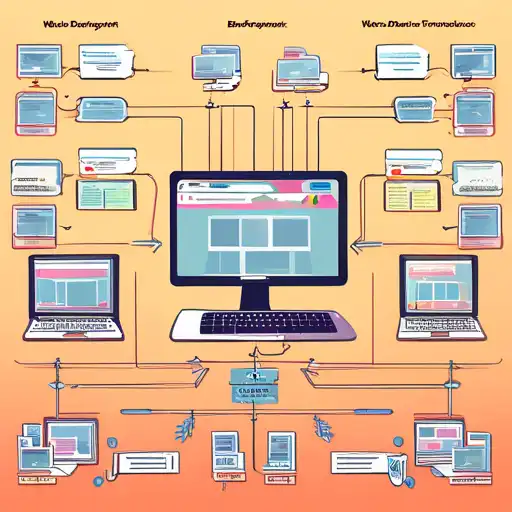Introduction to Web Development Frameworks
In the ever-evolving world of web development, choosing the right framework can be a daunting task. With a plethora of options available, each promising to be the best, developers often find themselves at a crossroads. This guide aims to simplify the decision-making process by highlighting key factors to consider when selecting a web development framework.
Understanding Web Development Frameworks
Web development frameworks are designed to support the development of web applications by providing a standard way to build and deploy them. They offer a foundation upon which developers can build without having to start from scratch, significantly speeding up the development process.
Types of Web Development Frameworks
There are primarily two types of web development frameworks: frontend and backend. Frontend frameworks, such as React and Angular, focus on the user interface and user experience. Backend frameworks, like Django and Ruby on Rails, handle server-side operations, database interactions, and application logic.
Factors to Consider When Choosing a Framework
Selecting the right framework depends on several factors, including the project requirements, team expertise, and long-term maintenance considerations. Below are some critical aspects to evaluate:
- Project Size and Complexity: Larger projects may benefit from robust frameworks that offer more features and scalability.
- Learning Curve: Consider the team's familiarity with the framework to avoid unnecessary delays.
- Community and Support: A strong community and good documentation can be invaluable resources.
- Performance: Evaluate the framework's performance metrics to ensure it meets your project's needs.
Popular Web Development Frameworks in 2023
Here's a look at some of the most popular web development frameworks this year:
- React: A JavaScript library for building user interfaces, known for its flexibility and efficiency.
- Angular: A platform for building mobile and desktop web applications, offering a comprehensive solution.
- Vue.js: A progressive framework for building UIs, known for its simplicity and adaptability.
- Django: A high-level Python web framework that encourages rapid development and clean, pragmatic design.
Conclusion
Choosing the right web development framework is crucial for the success of your project. By considering the factors outlined above and staying informed about the latest trends, you can make an informed decision that aligns with your project goals and team capabilities. Remember, the best framework is the one that fits your specific needs and helps you achieve your objectives efficiently.
For more insights into web development, check out our technology blog for the latest updates and tutorials.
